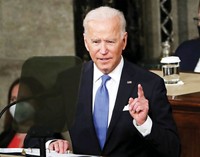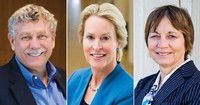Advertisement
Grab your lab coat. Let's get started
Welcome!
Welcome!
Create an account below to get 6 C&EN articles per month, receive newsletters and more - all free.
It seems this is your first time logging in online. Please enter the following information to continue.
As an ACS member you automatically get access to this site. All we need is few more details to create your reading experience.
Not you? Sign in with a different account.
Not you? Sign in with a different account.
ERROR 1
ERROR 1
ERROR 2
ERROR 2
ERROR 2
ERROR 2
ERROR 2
Password and Confirm password must match.
If you have an ACS member number, please enter it here so we can link this account to your membership. (optional)
ERROR 2
ACS values your privacy. By submitting your information, you are gaining access to C&EN and subscribing to our weekly newsletter. We use the information you provide to make your reading experience better, and we will never sell your data to third party members.
People
A Celebration Of Chemistry
Trendsetters honored with Heritage Day awards are concerned about the future
by Marc S. Reisch
July 16, 2012
| A version of this story appeared in
Volume 90, Issue 29

Three titans of science and business received awards at the annual Heritage Day celebration in April at the Chemical Heritage Foundation (CHF) in Philadelphia. Each acknowledged they owed their success in part to the U.S. academic climate over the past 30 years. However, two of the recipients wondered if that setting will produce the award winners of the future.
Receiving the Richard J. Bolte Sr. Award for Supporting Industries was G. Steven Burrill, chief executive officer of biotechnology investment firm Burrill & Co. Elizabeth H. Blackburn, winner of the 2009 Nobel Prize in Physiology or Medicine for her discovery of telomeres and their role in aging and cancer, received the American Institute of Chemists Gold Medal. And Marye Anne Fox, professor of chemistry and chancellor of the University of California, San Diego, received the Othmer Gold Medal.
Burrill arrived in Philadelphia a day before the April 12 Heritage Day festivities to participate in a recorded chat on “The Changing World of Biotech” with CHF Chancellor and former president Arnold Thackray. Speaking before an audience of about 50 people in CHF’s spacious Ullyot Meeting Hall, the biotechnology venture capitalist said he was optimistic about the future of health care because “genomics and proteomics will transform” the health care system, allowing doctors to anticipate disease and treat patients before they become ill.
Most of the major biotechnology advances of the past 30 years came out of U.S. academic research, but the same is unlikely to be true in the years ahead, Burrill said. The National Institutes of Health’s budget is going down on an absolute basis, he noted, while Chinese government support of health-related research is on the upswing. “The U.S. won’t be the world’s dominant economic engine for the next 100 years,” he said, noting the booming economies, growing consumer demand, and burgeoning research prowess of countries such as China, India, Russia, and Brazil.
Burrill also criticized U.S. immigration laws, which do not allow foreign scientists to remain in the U.S. after getting their education in this country. “Now we educate them and then throw them out after teaching them to eat our lunch,” he said.
The next afternoon at the Bolte Award ceremony with a group of about 150 in attendance, Burrill picked up with similar themes. But he focused his talk more broadly to address innovation during a time of austerity. He said he believes the biggest challenges facing the world—such as climate change, energy availability, and cost-effective health care—“all will be answered by the world of biotech.”
Following Burrill, Gold Medal Award winner Blackburn, who is currently a professor of biology and physiology at UC San Francisco, talked about her research. She described her journey from growing up in Australia to graduate research work in England at the University of Cambridge and then postdoctoral work in molecular and cellular biology in the U.S. at Yale University. A grant from NIH led to her discovery of telomerase enzymes and their role in cell replication and mortality.
After an evening dinner in her honor, Othmer Gold Medal winner Fox talked to 125 attendees about disturbing trends in educational funding that she feels will ultimately lead to the demise of U.S. leadership in science. She noted that cuts in the state government’s support of the University of California’s budget will compromise the institution’s ability to attract “the best and brightest” students. And she predicted that “as California goes, so goes the nation.”
Fox noted that the U.S. lead in science today “rests on contributions from many years ago.” Along with the investment in education, a culture grounded in risk-taking and entrepreneurship helped advance many technology-based enterprises in the U.S., she said. The recent trend to outsource advanced technology jobs to developing countries in Asia means that R&D goes abroad and along with it the intellectual and economic opportunities of the future.
Fox also underscored the deplorable lack of basic scientific knowledge among Americans. And to retain the skill of foreign students, she suggested that U.S. policymakers lift restrictions preventing foreign-born graduate students at U.S. colleges from remaining in the country after receiving their degrees.
“I am grateful for the education I have had” in the U.S., Fox said. “All I want for our American students is what I was given.” ◾




Join the conversation
Contact the reporter
Submit a Letter to the Editor for publication
Engage with us on Twitter